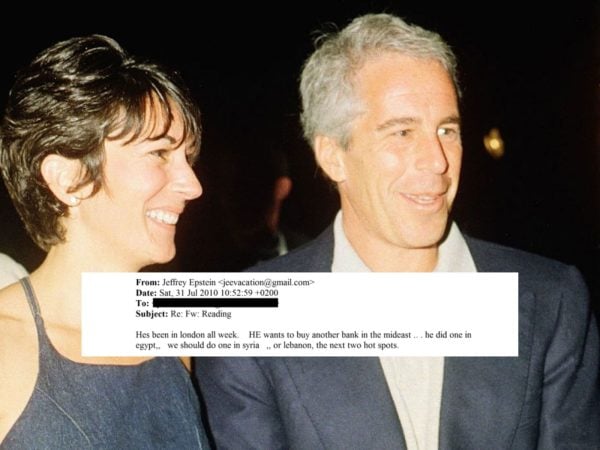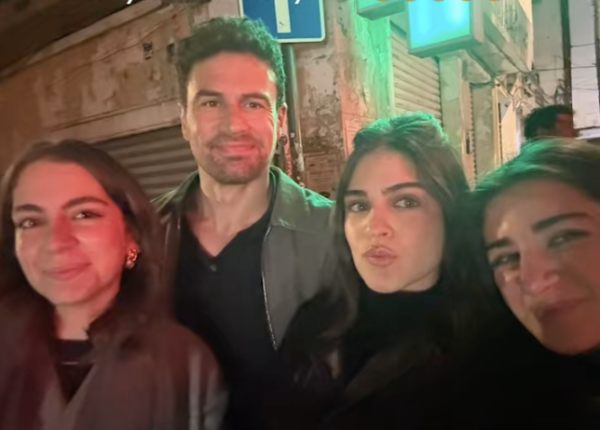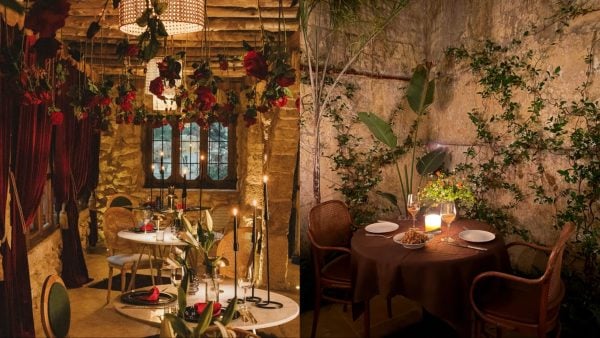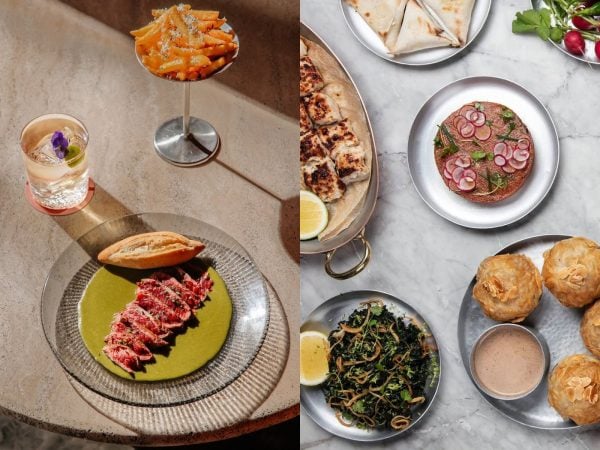Stuff We Love
Mesh Helo La Benet: Lebanese Artist Brilliantly Challenges Gender Role Stereotypes In The Middle East
Christina Atik is a graphic designer who lives in the hectic city of Beirut. Growing up, Atik had initially been interested in photography – and she learned everything she knows about it from her father.
Since then, Atik fell in love with illustration after taking a class about it in university. She became fascinated with drawing women, an affinity she claims is rooted in her familiarity with women and notions of femininity in the Middle East. “I love the different faces you can create, with just a few lines,” Atik says.
Recently, Atik made a drawing for her sister – someone who she describes as having a “beautiful big nose,” but one that her mother always encouraged her to change so that she could appear more ‘feminine’.
Below: ‘It’s not nice for a girl to have a big nose’
The drawing sparked her inspiration to create an illustrative series she called ‘Mesh 7elo la benet,’ a common phrase heard by girls in Lebanon that translates to ‘it’s not nice for a girl.’ The phrase is heavy with discriminatory gender stereotypes that are all to often prescribed – and it is one that women in Lebanon hear on a daily basis, dictating how to live, how to act, how to eat, how to speak, to truly be ‘a girl’.
Below: ‘It’s not nice for a girl to be hairy’
Growing up as a girl in the Middle East, you’ll hear this phrase a lot. Everything can be twisted into being ‘mesh 7elo la benet’ – from cursing, to speaking your mind, to having a natural appearance, to drinking alcohol, to staying out late at night, to wearing revealing clothing and smoking cigarettes. Everyday things are somehow fiercely gendered in Lebanon, where women are socialized to believe that normal human activities are inherently exclusionary: strictly reserved for men, and not for them.
Below: ‘It’s not nice for a girl to stay out late’
After she was asked to take over Retrieving Beirut’s Instagram account, Atik was given the authority to post whatever she wanted. That’s when she created the ‘mesh 7elo la benet’ series – a thought-provoking and culturally-insightful look into the restrictive gender role stereotypes women face on a daily basis in Lebanon. “I illustrated the drawings and labelled them with phrases that I’ve heard said to me or my friends, over and over again as we were growing up.”
Below: ‘It’s not nice for a girl to like another girl’
“I’m so surprised this series has gotten so much positive attention. Women from different countries can identify with the drawings about body hair, sexual abuse, queer identity, etc. I’ve even been receiving different ideas from women around the Middle East, centered around the ‘mesh 7elo la benet’ phrase that us women are so very tired of hearing.”
Below: ‘It’s not nice for a girl to say what she likes’
Atik’s creative series is more than just a cultural critique, it’s an important reminder of the discrimination that Lebanese women face on a daily basis, a discrimination that has become so normalized that some women don’t even recognize its absurdity. Her work sheds light on an important shift that Lebanese people need, a shift towards recognizing women as equal citizens who should be free to dress, talk, eat, and exist the way that they choose to – and not the way that society thinks they should.
Below: ‘It’s not nice for a girl to live alone’
Since then, Atik fell in love with illustration after taking a class about it in university. She became fascinated with drawing women, an affinity she claims is rooted in her familiarity with women and notions of femininity in the Middle East. “I love the different faces you can create, with just a few lines,” Atik says.
Recently, Atik made a drawing for her sister – someone who she describes as having a “beautiful big nose,” but one that her mother always encouraged her to change so that she could appear more ‘feminine’.
Below: ‘It’s not nice for a girl to have a big nose’
The drawing sparked her inspiration to create an illustrative series she called ‘Mesh 7elo la benet,’ a common phrase heard by girls in Lebanon that translates to ‘it’s not nice for a girl.’ The phrase is heavy with discriminatory gender stereotypes that are all to often prescribed – and it is one that women in Lebanon hear on a daily basis, dictating how to live, how to act, how to eat, how to speak, to truly be ‘a girl’.
Below: ‘It’s not nice for a girl to be hairy’
Growing up as a girl in the Middle East, you’ll hear this phrase a lot. Everything can be twisted into being ‘mesh 7elo la benet’ – from cursing, to speaking your mind, to having a natural appearance, to drinking alcohol, to staying out late at night, to wearing revealing clothing and smoking cigarettes. Everyday things are somehow fiercely gendered in Lebanon, where women are socialized to believe that normal human activities are inherently exclusionary: strictly reserved for men, and not for them.
Below: ‘It’s not nice for a girl to stay out late’
After she was asked to take over Retrieving Beirut’s Instagram account, Atik was given the authority to post whatever she wanted. That’s when she created the ‘mesh 7elo la benet’ series – a thought-provoking and culturally-insightful look into the restrictive gender role stereotypes women face on a daily basis in Lebanon. “I illustrated the drawings and labelled them with phrases that I’ve heard said to me or my friends, over and over again as we were growing up.”
Below: ‘It’s not nice for a girl to like another girl’
“I’m so surprised this series has gotten so much positive attention. Women from different countries can identify with the drawings about body hair, sexual abuse, queer identity, etc. I’ve even been receiving different ideas from women around the Middle East, centered around the ‘mesh 7elo la benet’ phrase that us women are so very tired of hearing.”
Below: ‘It’s not nice for a girl to say what she likes’
Atik’s creative series is more than just a cultural critique, it’s an important reminder of the discrimination that Lebanese women face on a daily basis, a discrimination that has become so normalized that some women don’t even recognize its absurdity. Her work sheds light on an important shift that Lebanese people need, a shift towards recognizing women as equal citizens who should be free to dress, talk, eat, and exist the way that they choose to – and not the way that society thinks they should.
Below: ‘It’s not nice for a girl to live alone’





